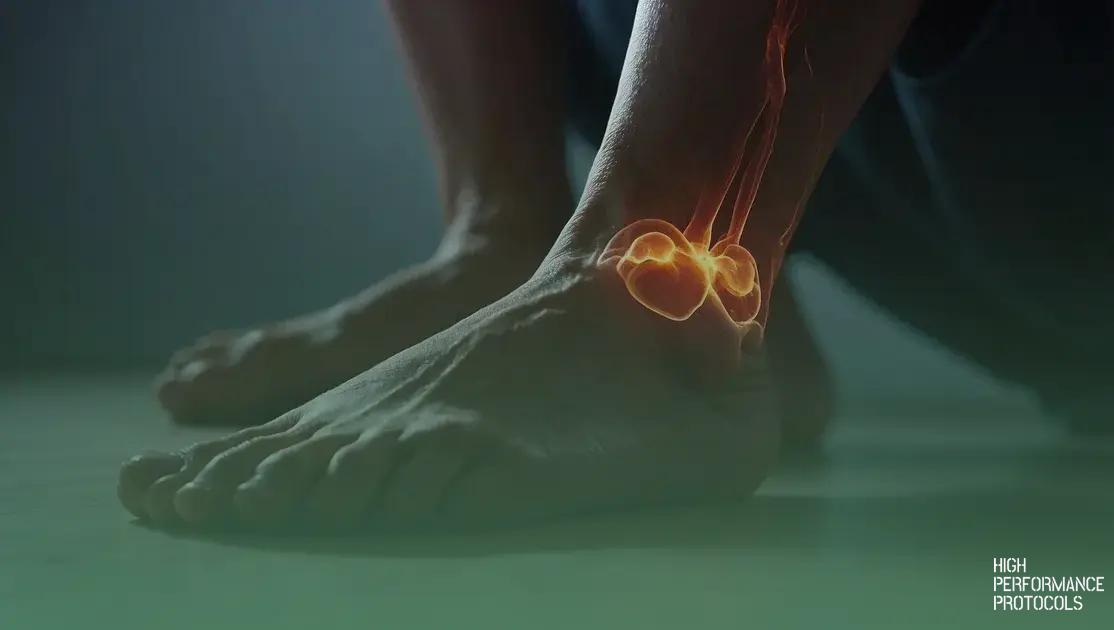Peripheral neuropathy is a condition caused by nerve damage, leading to symptoms like tingling, numbness, and pain. Treatment options include medications, physical therapy, and lifestyle changes. Early recognition and management are key to improving quality of life.
Peripheral neuropathy affects many individuals, leading to discomfort and challenges in daily life. Understanding its symptoms and causes is essential for effective management.
What is Peripheral Neuropathy?
Peripheral neuropathy is a condition that affects the nerves outside the brain and spinal cord. These nerves help control movement and sensation in our arms and legs. When they get damaged, it can lead to various problems like pain, weakness, or numbness.
This condition can happen for many reasons. Diabetes is one of the most common causes. High blood sugar can hurt the nerves over time. Other causes can include infections, injuries, or even some medications.
Symptoms can vary from person to person. Some might feel sharp pains, while others may notice tingling or a feeling of heaviness in their limbs. Sometimes, people may have trouble feeling touch or temperature, which can be dangerous.
It’s important to recognize the signs. If you notice any symptoms affecting your hands or feet, talking to a doctor is a good step. Early detection can lead to better management of the condition.
Causes and Risk Factors
Many factors can lead to peripheral neuropathy. One of the biggest causes is diabetes. Long-term high blood sugar can damage the nerves.
Other health issues can also play a role. For example, autoimmune diseases like rheumatoid arthritis can attack nerves. Certain infections, like Lyme disease or shingles, can also be trouble.
Injuries and accidents can lead to nerve damage. If a nerve is compressed or stretched, it can result in symptoms. This can happen from a fracture or a sports injury.
Alcohol abuse is another factor. Drinking too much can harm nerves over time. Some medications, especially those used for cancer, can also cause neuropathy.
Genetics may influence your risk. If someone in your family has neuropathy, you might be more likely to develop it too. Age is another factor. As we get older, the risk of nerve damage increases.
Symptoms to Watch For
Recognizing the symptoms of peripheral neuropathy is important. Early signs can help with treatment. Here are some common symptoms to watch for:
Tingling or Numbness: Many people feel a tingling sensation in their hands or feet. This can be mild or intense.
Sharp Pain: Some may experience sharp, stabbing pains. This can happen at any time, even during rest.
Weakness: Feeling weak in the arms or legs is another common symptom. This can make daily activities harder.
Sensitivity to Touch: Things that normally feel fine may hurt. Even the lightest touch can be painful for some.
Loss of Coordination: If you notice trouble balancing or coordination, it could be a sign. This can increase the risk of falls.
Pay attention to these symptoms. If you experience any, it’s best to consult a doctor for further evaluation.
Management and Treatment Options
Managing peripheral neuropathy involves a mix of treatments. Your doctor can help find the right plan for you. Here are some common management options:
Medication: Pain relievers and anti-inflammatory drugs can help reduce discomfort. Doctors may prescribe medications specifically for nerve pain, like gabapentin or pregabalin.
Physical Therapy: Working with a physical therapist can improve strength and coordination. They can provide exercises tailored to your needs.
Lifestyle Changes: Eating a balanced diet is important. Focus on whole foods, fruits, and vegetables. Limiting alcohol can also help prevent further nerve damage.
Alternative Therapies: Some find relief through acupuncture or massage therapy. These can ease pain and promote relaxation.
Managing Underlying Conditions: Controlling blood sugar levels is crucial for diabetics. Treating other health issues can help improve symptoms.
Each person’s needs are different. It’s essential to work closely with healthcare providers to find the best approach for you.
In Summary
Living with peripheral neuropathy can be challenging, but understanding it is the first step. Recognizing symptoms early on can lead to better management options.
There are various treatments available, ranging from medications to lifestyle changes. Working closely with a doctor can help tailor a plan that fits your needs.
Stay proactive about your health and seek the right support. With the right approach, you can manage symptoms and improve your quality of life.
FAQ – Common Questions About Peripheral Neuropathy
What is peripheral neuropathy?
Peripheral neuropathy is a condition where nerves outside the brain and spinal cord get damaged, causing pain, numbness, and weakness.
What are the main causes of peripheral neuropathy?
Common causes include diabetes, injuries, infections, alcohol abuse, and genetic factors.
What are some symptoms to look out for?
Symptoms include tingling, numbness, sharp pain, weakness, and sensitivity to touch in the hands or feet.
How is peripheral neuropathy treated?
Treatment options include medications, physical therapy, lifestyle changes, and managing underlying health issues.
Can lifestyle changes help manage symptoms?
Yes, eating a balanced diet, exercising, and limiting alcohol can help improve symptoms and overall health.
When should I see a doctor?
You should see a doctor if you notice any symptoms of peripheral neuropathy to get a proper diagnosis and treatment plan.

Max is a health and wellness researcher dedicated to optimizing human performance through science-backed protocols. As a contributor to High Performance Protocols, he analyzes the latest medical studies and translates complex research into practical, easy-to-follow strategies for improving energy, longevity, and overall well-being. Passionate about biohacking, nutrition, and evidence-based health solutions, Max Reynolds helps readers navigate the ever-evolving world of health optimization with clarity and precision.
